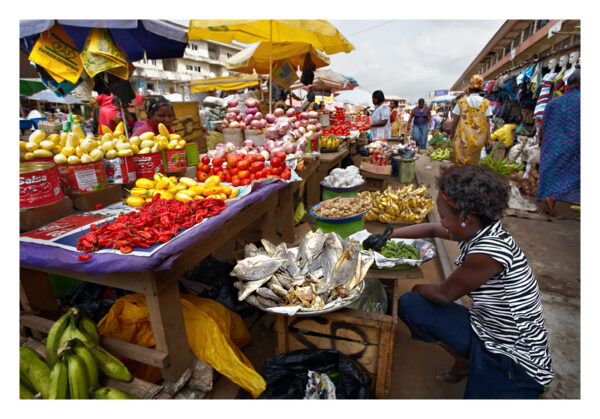
The rate at which the prices of goods and services increase (inflation) in the country reached a six-year high in January this year.
In the month under review, the rate of inflation soared to 13.9 per cent from the 12.6 per cent recorded in December 2021.
This represents a sharp increase of 1.3 percentage points.
Inflation last surpassed 13 per cent in December 2016 when it reached 15.4 per cent in December 2016.
This January 2022 inflation rate was announced by the Government Statistician, Professor Samuel Kobina Annim, at a press conference in Accra.
Main drivers
The main drivers of last month’s inflation rate was the housing, water, electricity, gas and other fuels sub sectors which recorded the highest inflation rate of 28.7 per cent.
Read also: Greater Accra now most populous region in Ghana
This was followed by the transport, the food and non-alcoholic beverages sub sectors which recorded inflation rates of 17.4 per cent and 13.7 per cent, respectively.
The education services sub-sector recorded the lowest inflation rate of 0.9 per cent.

Two Divisions (Housing, Water, Electricity, Gas and Other Fuels (28.7 per cent, and Transport (17.4 per cent) recorded inflation rates which were higher than the national average of 13.9 per cent.
Regional inflation
At the regional level, the overall year-on-year inflation ranged from 6.9 per cent in the Eastern Region to 18.4 per cent in the Greater Accra Region.
The Greater Accra Region recorded the highest month-on-month inflation (5 per cent), Upper West Region recorded a negative month-on-month inflation rate in January 2022 (-1.0 per cent).
Food and non-food inflation
January’s food inflation (13.7 per cent) was higher than December’s food inflation rate of 12.8 per cent and the average of the previous 12 months (10.4 per cent).
Food inflation’s contribution to total inflation decreased marginally from 45.2 per cent in December 2021 to 44.2 per cent in January 2022.
Overall month-on-month food inflation was two per cent, which was higher than the 12-month national month-on-month rolling average of food inflation (1.1 per cent).
Fourteen out of the 15 food sub-classes recorded positive month-on-month inflation, with fruit and vegetable juices recording a deflation (-0.4 per cent).
Non-food year-on-year inflation on average went up again in January 2022 compared to December 2021 (from 12.5 per cent to 14.1 per cent).
Two out of the 12 Non-food Divisions had the 12 months rolling average to be higher than the year-on-year inflation for January 2022 for the divisions.
The inflation for imported goods was 11 per cent, which is higher than the 10.4 per cent recorded for December 2021, while the inflation for locally produced items was 15 percent, also up from the 13.3 per cent recorded in December.

